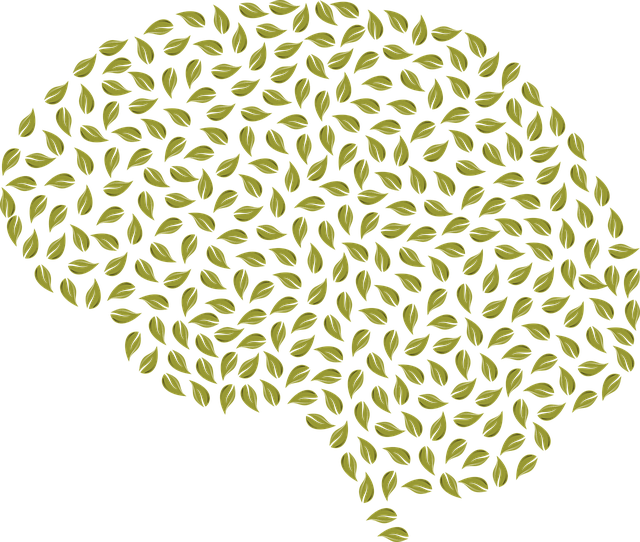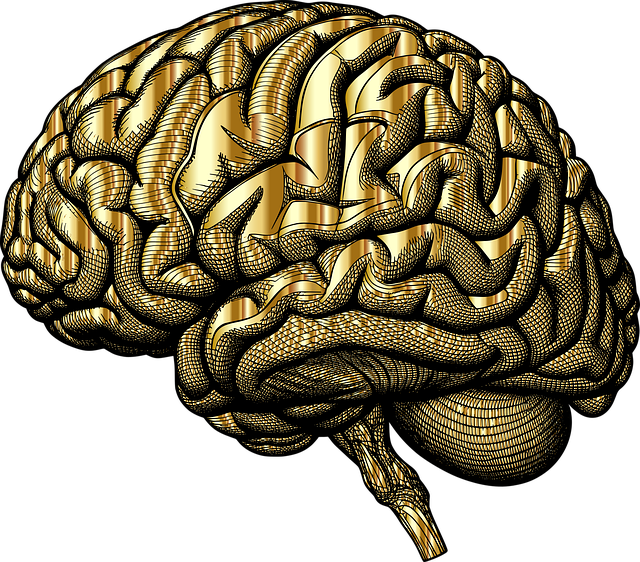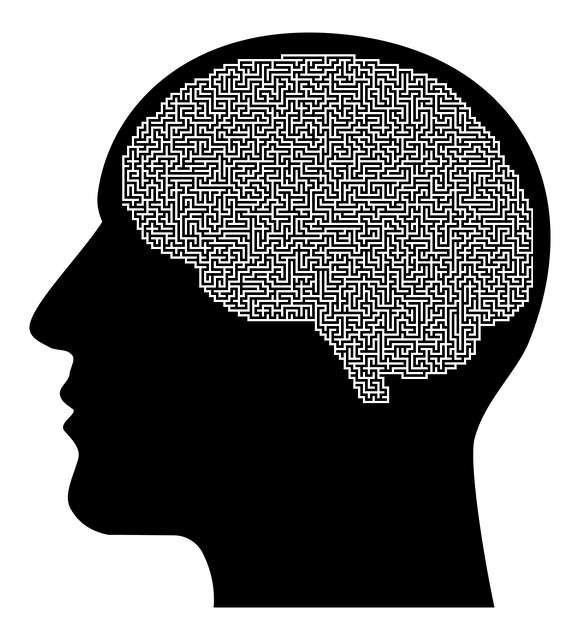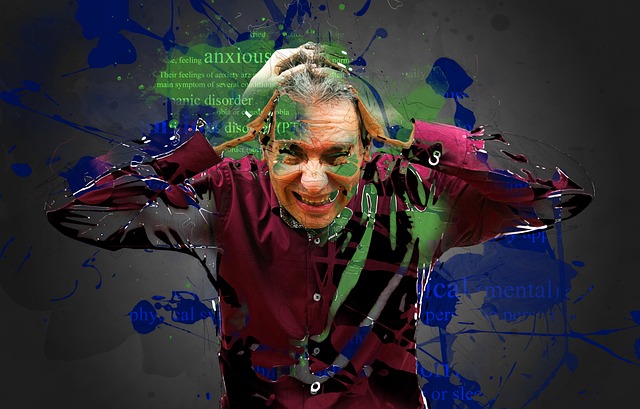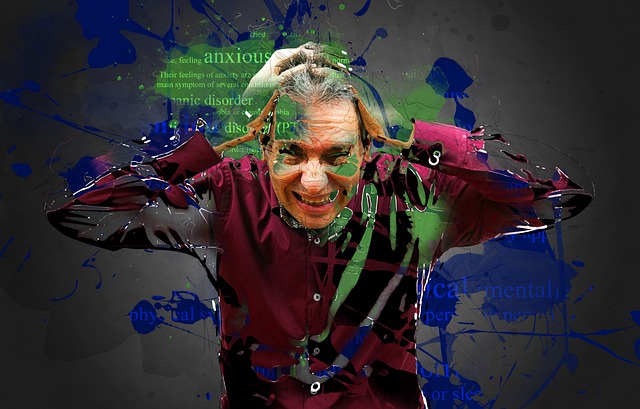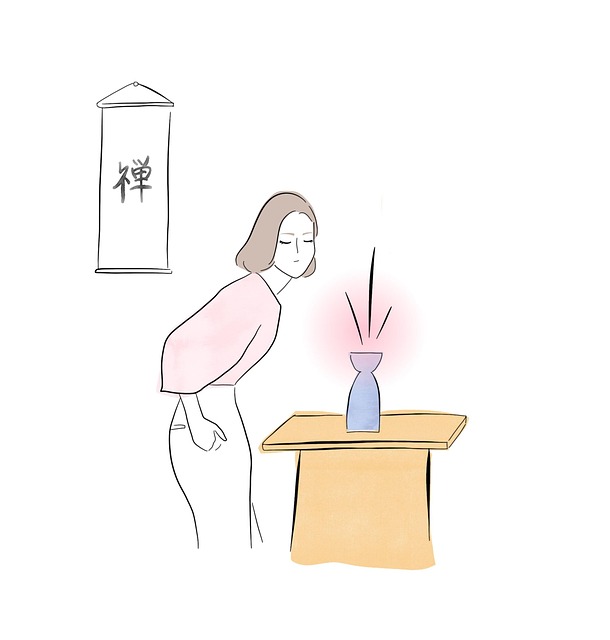In today's diverse world, mental healthcare professionals must embrace cultural sensitivity as a core principle for effective treatment. Golden Anxiety Therapy recognizes that anxiety manifests differently across cultures due to varied social norms and coping mechanisms. By integrating cultural awareness, therapists can offer personalized care, navigate nuances, foster open dialogue, prevent burnout, enhance trust, and improve outcomes. This approach includes strategies like Mind Over Matter principles, workshops from organizations like the Stress Management Workshops Development team, and culturally relevant coping mechanisms. Ongoing education, training, and commitment to understanding diverse backgrounds are key; practices like mindfulness meditation and journaling can also aid in creating supportive environments. Case studies show that Golden Anxiety Therapy, combined with Emotional Intelligence and tailored interventions, successfully addresses anxiety among first-generation immigrants and indigenous populations, promoting trust, open communication, and improved emotional well-being.
In today’s diverse society, cultural sensitivity is paramount in mental healthcare. Effective treatment requires an understanding of patients’ unique cultural contexts, especially when addressing conditions like Golden Anxiety Therapy (GAT). This article explores the cornerstone principles of cultural sensitivity, delving into strategies for clinical practice and presenting case studies showcasing successful, culturally sensitive approaches to GAT. By embracing these methods, mental health professionals can provide more inclusive, impactful care.
- Understanding Cultural Sensitivity: The Cornerstone of Effective Mental Healthcare
- Navigating Golden Anxiety Therapy with a Cultural Lens
- Strategies for Incorporating Cultural Competence in Clinical Practice
- Case Studies: Successful Cultural Sensitive Approaches in Mental Health Care
Understanding Cultural Sensitivity: The Cornerstone of Effective Mental Healthcare

Understanding Cultural Sensitivity is paramount in mental healthcare, serving as the cornerstone for effective therapy and treatment. In a world with diverse populations, cultural sensitivity ensures that mental health professionals can provide tailored care, respecting and embracing each client’s unique background, traditions, and beliefs. This approach, often referred to as Golden Anxiety Therapy, transcends one-size-fits-all solutions, recognizing that anxiety disorders, for instance, manifest differently across cultures due to varied social norms, values, and coping mechanisms.
Integrating cultural sensitivity into practice involves ongoing self-awareness exercises and education. Mental health professionals must be adept at navigating the intricate web of cultural nuances, especially in a society where public awareness campaigns on mental health are gaining traction. By fostering an environment that encourages open dialogue about cultural differences, therapists can prevent burnout, enhance patient trust, and ultimately improve outcomes. This holistic approach ensures that individuals from all walks of life receive compassionate, culturally competent care, promoting better mental health outcomes for everyone.
Navigating Golden Anxiety Therapy with a Cultural Lens

In today’s diverse society, mental healthcare professionals must approach Golden Anxiety Therapy with a nuanced cultural lens to ensure effective and sensitive treatment. Cultural sensitivity involves understanding the unique beliefs, values, and practices that shape individuals’ experiences of anxiety and stress. For instance, what may be considered an anxiety-inducing situation in one culture could be a normal part of life in another.
Integrating Mind Over Matter principles into therapy can bridge cultural gaps by teaching clients coping strategies that resonate with their personal narratives. Additionally, organizations like the Stress Management Workshops Development team can play a crucial role in promoting culturally responsive care. By offering programs that cater to diverse communities, these workshops equip both therapists and clients with tools to navigate anxiety while respecting and embracing individual cultural backgrounds, ultimately enhancing mental wellness coaching initiatives.
Strategies for Incorporating Cultural Competence in Clinical Practice

Incorporating cultural competence into clinical practice is a multifaceted approach that begins with education and training. Mental health professionals should engage in ongoing learning about different cultural backgrounds, traditions, and beliefs to enhance their understanding and empathy. This knowledge enables them to create safe and supportive therapeutic environments for clients from diverse communities. One effective strategy is to participate in workshops, seminars, or mentorship programs focused on cultural sensitivity, ensuring they can navigate the intricate nuances of various cultures with dexterity.
Additionally, integrating practices like mindfulness meditation, mental wellness journaling exercises, and self-esteem improvement techniques tailored to cultural contexts can significantly benefit clients. For instance, Golden Anxiety Therapy can be enriched by incorporating culturally relevant coping mechanisms, allowing individuals to connect with their inner strength and resilience in a way that resonates deeply with them. Such personalized approaches not only improve therapy outcomes but also foster trust and engagement between therapists and clients from different cultural backgrounds.
Case Studies: Successful Cultural Sensitive Approaches in Mental Health Care

In the realm of mental healthcare, cultural sensitivity is a game-changer. Consider a case study involving a first-generation immigrant experiencing severe anxiety, who was initially reluctant to seek therapy due to language barriers and fear of judgment based on their cultural background. A culturally sensitive approach, utilizing Golden Anxiety Therapy techniques combined with Emotional Intelligence, proved highly effective. The therapist’s ability to connect through shared understanding and empathy, while incorporating Social Skills Training tailored to the patient’s culture, helped build trust and facilitated open communication. This holistic method not only addressed the client’s anxiety but also empowered them to manage stress effectively.
Another example highlights a community-based program focused on mental health awareness among indigenous populations. By integrating traditional healing practices and tailoring interventions to specific cultural needs, the initiative successfully reduced stigma and encouraged early intervention. Incorporating Stress Management techniques, such as mindfulness and relaxation exercises, further enhanced participants’ emotional well-being. These successful case studies demonstrate that culturally sensitive practices in mental healthcare can lead to profound positive outcomes, ensuring folks from diverse backgrounds receive the support they need and deserve.
Cultural sensitivity is no longer a consideration—it’s an imperative in modern mental healthcare. By embracing diverse perspectives and implementing strategies like those discussed for Golden Anxiety Therapy, practitioners can create inclusive environments that respect and honor patients’ cultural identities. Case studies illustrate the transformative power of cultural competence, demonstrating its ability to enhance treatment outcomes and foster deeper connections between healers and those they serve. As we navigate an increasingly globalized world, investing in cultural sensitivity is not just a moral duty but a key to unlocking effective mental healthcare for all.


